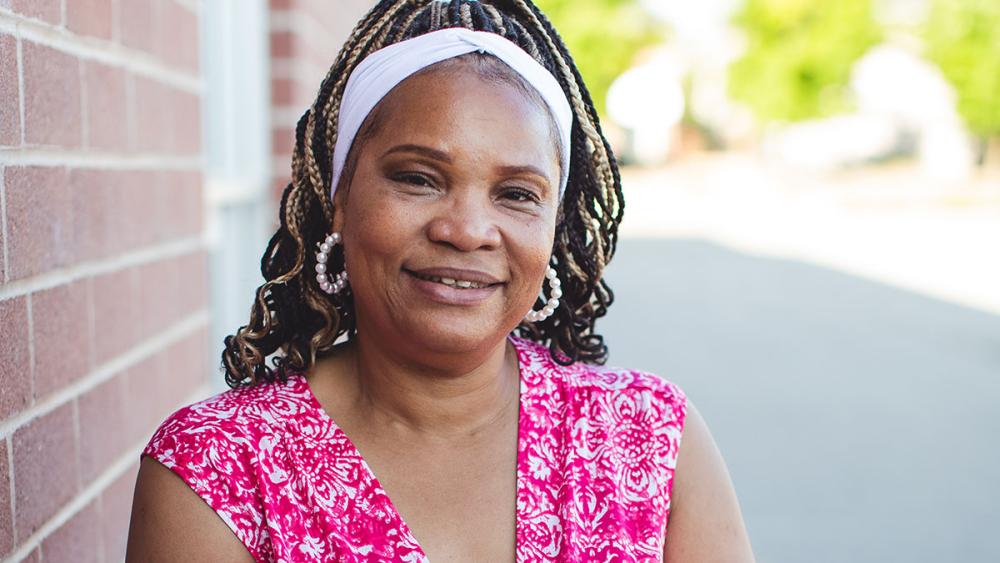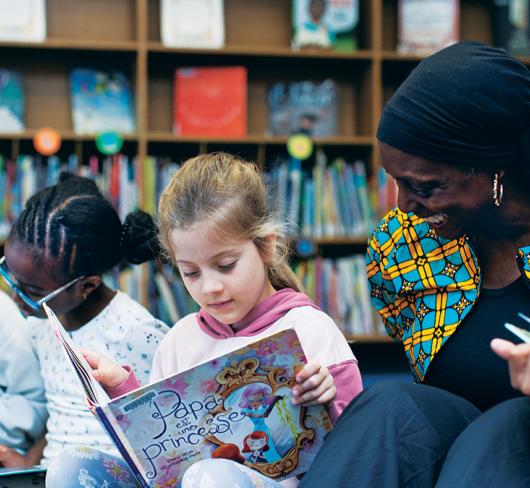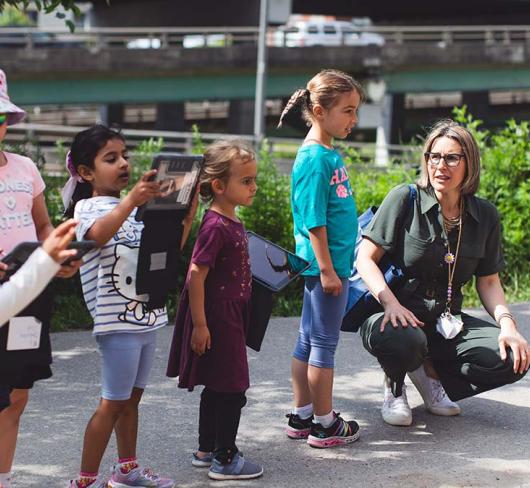
Reflections on Practice
Since 1962, Canadian teachers have worked with educators in developing countries through Project Overseas, a program offered by the Canadian Teachers’ Federation (CTF/FCE) in partnership with its member organizations across Canada. The goal of the program is to “improve teaching and learning and to promote equitable, high-quality, publicly funded education for all.” Project Overseas focuses on creating and co-facilitating workshops with overseas colleagues, helping to strengthen the capacities of partner organizations and addressing gender equality for teachers and students.
I became aware of and interested in Project Overseas when I met a former participant at the ETFO Annual Meeting in 2016. She had been part of a delegation to Nigeria, my country of origin, and her stories filled me with excitement. She shared some of the conversations she had with Nigerian women teachers she met about their self-perceptions, perceptions of women teachers in relation to their male counterparts, gender issues in African education and feminism. I am passionate about gender equity and access to education for girls and women and I saw Project Overseas as an opportunity to enhance my leadership skills and enrich my teaching practice.
I applied in the fall of 2018, and in July of 2019 I became a member of one of the teams volunteering in Uganda. That year there were two teams of five participants, one team working in the capital city of Kampala and the other seven hours away in the western Ugandan town of Kabale. Kabale is a beautiful town near the border of Rwanda, with an amazing landscape of hills and cool weather.
Before travelling to the region, both teams had a three-day session of co-planning with our Ugandan co-tutors in the head office of the Uganda National Teachers’ Union (UNATU) in Kampala. Based on the areas of focus identified by our partner organization, each team member worked with a co-tutor to plan lessons in a subject area. I was responsible for planning and facilitating the math sessions with my co-tutor.
We had the opportunity to visit classrooms in Kampala and Kabale, observing the learning conditions and environments our co-tutors worked in. Many classes had between 40 and 60 students. We engaged in conversations with the teachers and head teachers at the schools and learned about some of the challenges they face. One of the concerns shared by a principal from Kabale was the dropout rate of female students. In this particular school, the lack of good toilet facilities and menstruation supplies kept girls away. Keeping girls in school is a significant concern in many regions of Uganda because of a host of factors, including poverty, early marriage, and gender violence. We clearly saw the need for developing genderresponsive school environments and understood why CTF, in collaboration with UNATU, established the Simameni project in early 2020. Simameni means “stand up” in Swahili. The goal of this initiative is to improve access, retention, and educational opportunities for secondary school-aged girls in communities of the country’s western and Teso regions.
Another discovery we made during our visits and discussions with educators was the challenge they faced trying to address all subject area expectations in their curriculum. They felt that there was not enough time to do this and as a result focused on subjects like language and math that they considered more important. There was inconsistency in the teaching of physical education lessons, which was compounded by a lack of equipment and resources for programming.
Working with our co-tutors, we decided to address this issue in our sessions. In our math sessions, we included games and playbased activities that showed educators how to teach numeracy through play. Educators were running and engaging in all sorts of physical activities while practising math skills. We had so much fun as the field echoed with the laughter and joy of participants. Together, we problem-solved to help educators address multiple expectations from different subject areas.
To address the challenge of lack of equipment and resources for physical education, our co-tutors showed us how to use grass, banana leaves and banana leaf ropes to create soccer balls. The ropes were also used for skipping. It was beautiful to see how items were repurposed to address and meet student needs. We also shared several games and activities that could be done with the students with little or no equipment.
Upon coming back to Canada after this experience, I began to look for ways I could repurpose items and resources in my classroom. Like many other boards across the province, funding cuts have impacted access to learning materials. As a School Improvement Process Coach, I work with school administrators and educators to look at ways of repurposing some resources and materials and think of my time in Uganda as inspiration.
Volunteering in Uganda was such a thrilling and life-changing experience. I learned so much from the people I met and enjoyed tremendously the cultural exchange and privilege of engaging in rich discussions about education from different perspectives. In 2023, I decided to apply to Project Overseas again and was overjoyed when I was chosen to lead the team going to St. Vincent and the Grenadines (SVG).
That year, instead of organizing our learning by subject areas, team members focused on themes like assessment and evaluation, technology, differentiated instruction and leadership. I was responsible for co-facilitating the assessment and evaluation session with my SVG co-tutor, who was a lecturer at the teachers’ college in Kingstown.
For our session, we included a video clip that showed a North American classroom with students sitting in groups and the educator engaging in small-group instruction. The classroom was well equipped with a variety of resources and materials in various learning centres. As soon as the clip came on, one of the participants immediately said that this would not work in their context.
Even though the focus of the video was on the definition of “assessment for learning,” the images created a barrier for some of the viewers. During a conversation about this later, the teacher related how the classroom setting was too different from theirs.
We had discussed the need to use smallgroup instruction in programming, but the local teachers had insisted that this was not possible. I arranged with the course director for us to visit a typical classroom and saw how desks were arranged in rows from wall to wall and right against the teacher’s desk. I understood their perspective and worked with them to come up with ways we could still have student-centred learning in addition to the teacher-directed instruction. We explored the use of partner reading and role plays in their language programming.
My leadership style, skills and emotional capacity were put to the test in carrying out my responsibilities as a team lead and dealing with the situations and issues that came up during the project. I learned to be assertive in interrupting implicit biases and to have courageous conversations. I learned the importance of bringing conversations back to the issue when participants got emotional and began to make it about themselves or other people. I had to reflect on how to call people out tactfully and rebuild relationships. The beauty and power of leading with grace was reinforced for me.
My participation in Project Overseas has had a transformative impact on my life and career. I have been inspired by the people I met and challenged by their stories and lived experiences. My experiences have enabled me to learn more about who I am and to evaluate my beliefs and assumptions. I have established deep and impactful friendships and honed my leadership skills and expertise in curriculum programming and capacity building. I recognized that I needed to be more intentional and consistent in engaging in activities that positively preserve my well-being.
If you are interested, I encourage you to explore what Project Overseas has to offer. It is an incredible opportunity to learn from others, to share your best practices and to grow as an educator. The deadline to apply is in October. Learn more at members.etfo.
The Canadian Teachers’ Federation has renamed Project Overseas. It is now called International Collaboration for Education.
Uloma Onyido is a member of the Elementary Teachers of Toronto.

